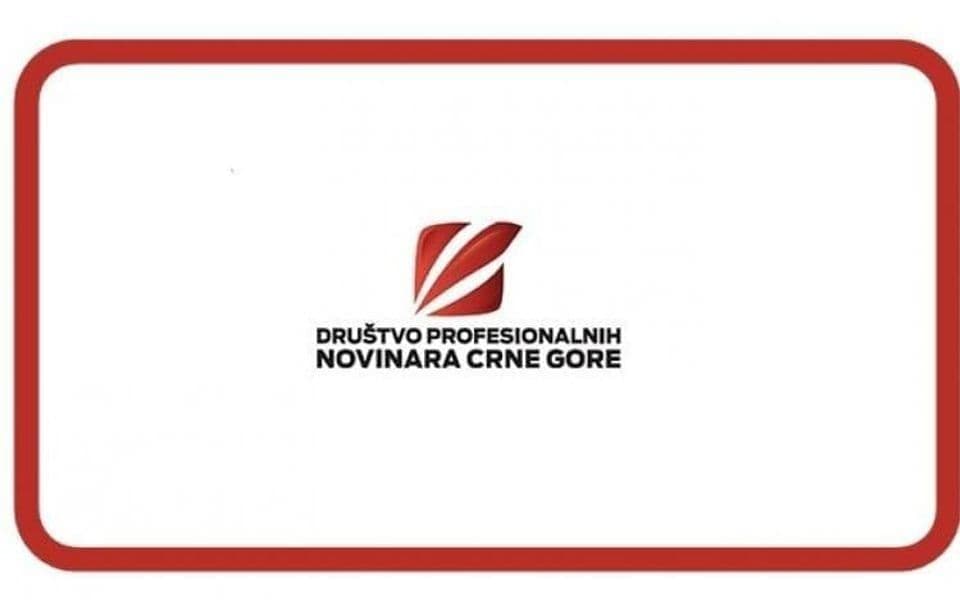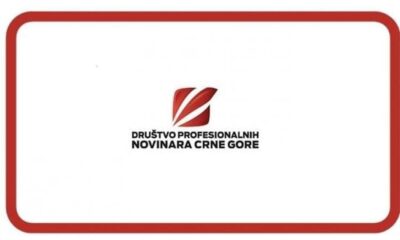Top Stories
Court Decision Raises Concerns Over Press Freedom in Montenegro

A recent ruling by the Bijelo Polje Court has sparked significant concern regarding press freedom in Montenegro. The court upheld actions taken by Sakib Cindrak, who obstructed journalist Alisa Hajdarpasic from covering police operations related to the arrest of Zoran Lazovic, a former intelligence sector official. This decision has raised alarms among media professionals about the implications for journalistic integrity and public access to information.
According to the Journalists’ Association of Montenegro (DPNCG), the court’s statement, delivered by Judge Andrijana Bulatovic, described Cindrak’s interference as a “legitimate reaction” to what was deemed unauthorized filming on private property. The ruling stated that phrases such as “please do not film” and physical attempts to block Hajdarpasic’s camera did not constitute a violation of public order or an act of violence.
The court determined that such actions are acceptable when they occur on private land, thereby setting a troubling precedent for the treatment of journalists in the field. The ruling indicated that the mere act of touching the journalist’s phone could not be classified as an attack on her person, significantly downplaying the severity of the incident.
DPNCG criticized the court’s decision, asserting that it undermines the standards set by the European Court of Human Rights and fails to recognize the unique challenges faced by journalists. The association emphasized that preventing coverage of high-profile individuals, particularly those within the security sector, is a matter of public interest. They argued that if officials do not grasp the significance of journalistic work in serving the public, it compromises their ability to fulfill their duties.
The association expressed strong disapproval of the ruling, stating it encourages a culture where individuals can obstruct journalists with little consequence. DPNCG highlighted that Hajdarpasic was not engaging in covert filming; she was reporting on a significant police operation, which is a fundamental aspect of her role as a journalist.
Hajdarpasic plans to appeal the ruling, citing the potential dangers it poses to media professionals. The DPNCG has called for a reassessment of the case by higher authorities, including the Constitutional Court, to ensure that press freedom is upheld and that journalists can perform their duties without fear of obstruction or retaliation.
In a statement, the DPNCG remarked, “The media is a pillar of democracy, and the public has the right to know.” They stressed the importance of protecting journalists’ rights to report on matters of public interest, warning that the current court decision could lead to a chilling effect on media freedom in Montenegro.
-

 Entertainment2 months ago
Entertainment2 months agoAnn Ming Reflects on ITV’s ‘I Fought the Law’ Drama
-

 Entertainment3 months ago
Entertainment3 months agoKate Garraway Sells £2 Million Home Amid Financial Struggles
-

 Health2 months ago
Health2 months agoKatie Price Faces New Health Concerns After Cancer Symptoms Resurface
-

 Entertainment2 months ago
Entertainment2 months agoCoronation Street’s Carl Webster Faces Trouble with New Affairs
-

 Entertainment2 months ago
Entertainment2 months agoWhere is Tinder Swindler Simon Leviev? Latest Updates Revealed
-

 Entertainment3 months ago
Entertainment3 months agoKim Cattrall Posts Cryptic Message After HBO’s Sequel Cancellation
-

 Entertainment2 months ago
Entertainment2 months agoOlivia Attwood Opens Up About Fallout with Former Best Friend
-

 Science2 weeks ago
Science2 weeks agoBrian Cox Addresses Claims of Alien Probe in 3I/ATLAS Discovery
-

 Entertainment2 months ago
Entertainment2 months agoMasterChef Faces Turmoil as Tom Kerridge Withdraws from Hosting Role
-

 Entertainment3 months ago
Entertainment3 months agoMarkiplier Addresses AI Controversy During Livestream Response
-

 Entertainment4 months ago
Entertainment4 months agoSpeculation Surrounds Home and Away as Cast Departures Mount
-

 World2 months ago
World2 months agoCole Palmer’s Mysterious Message to Kobbie Mainoo Sparks Speculation











